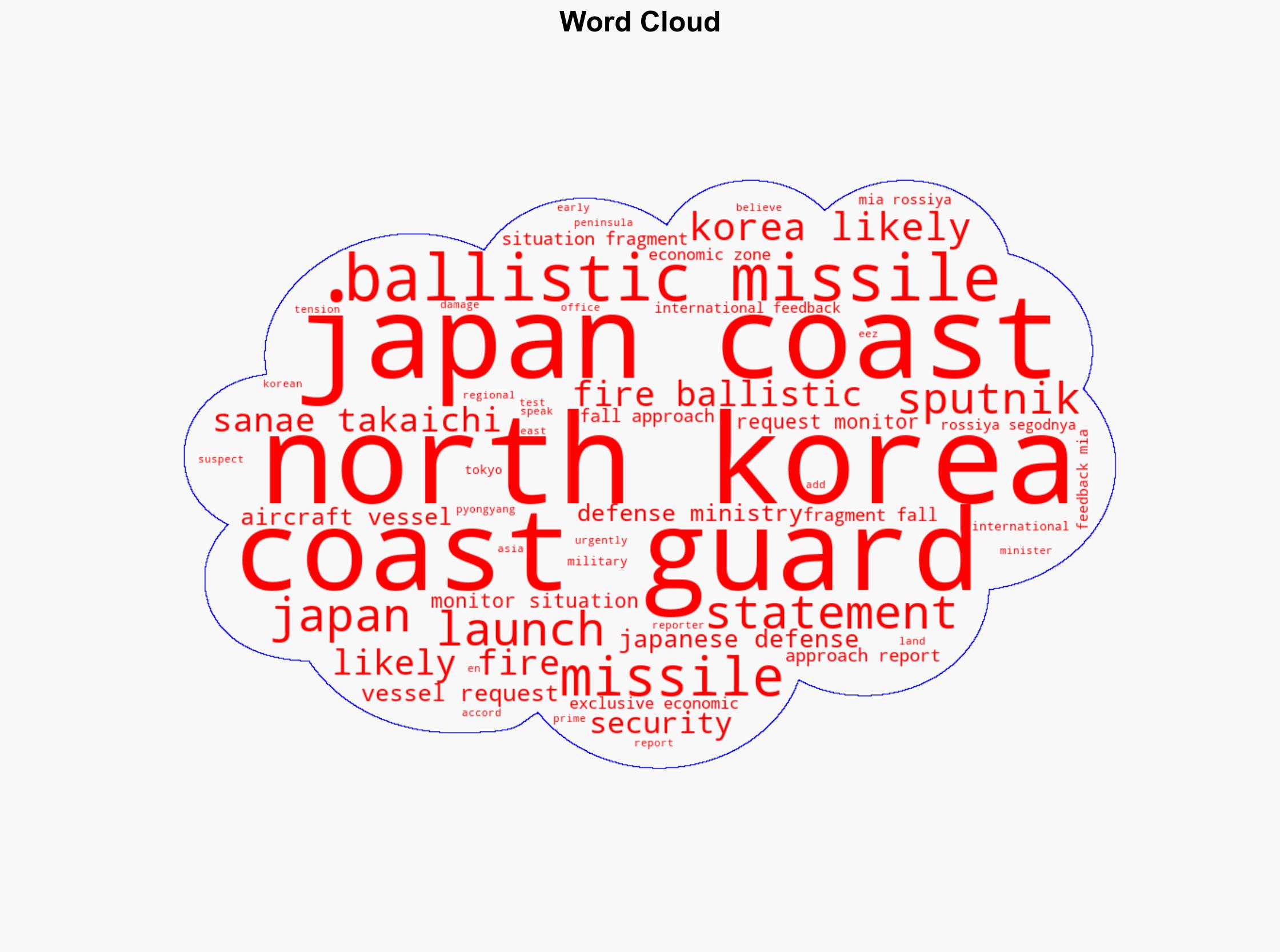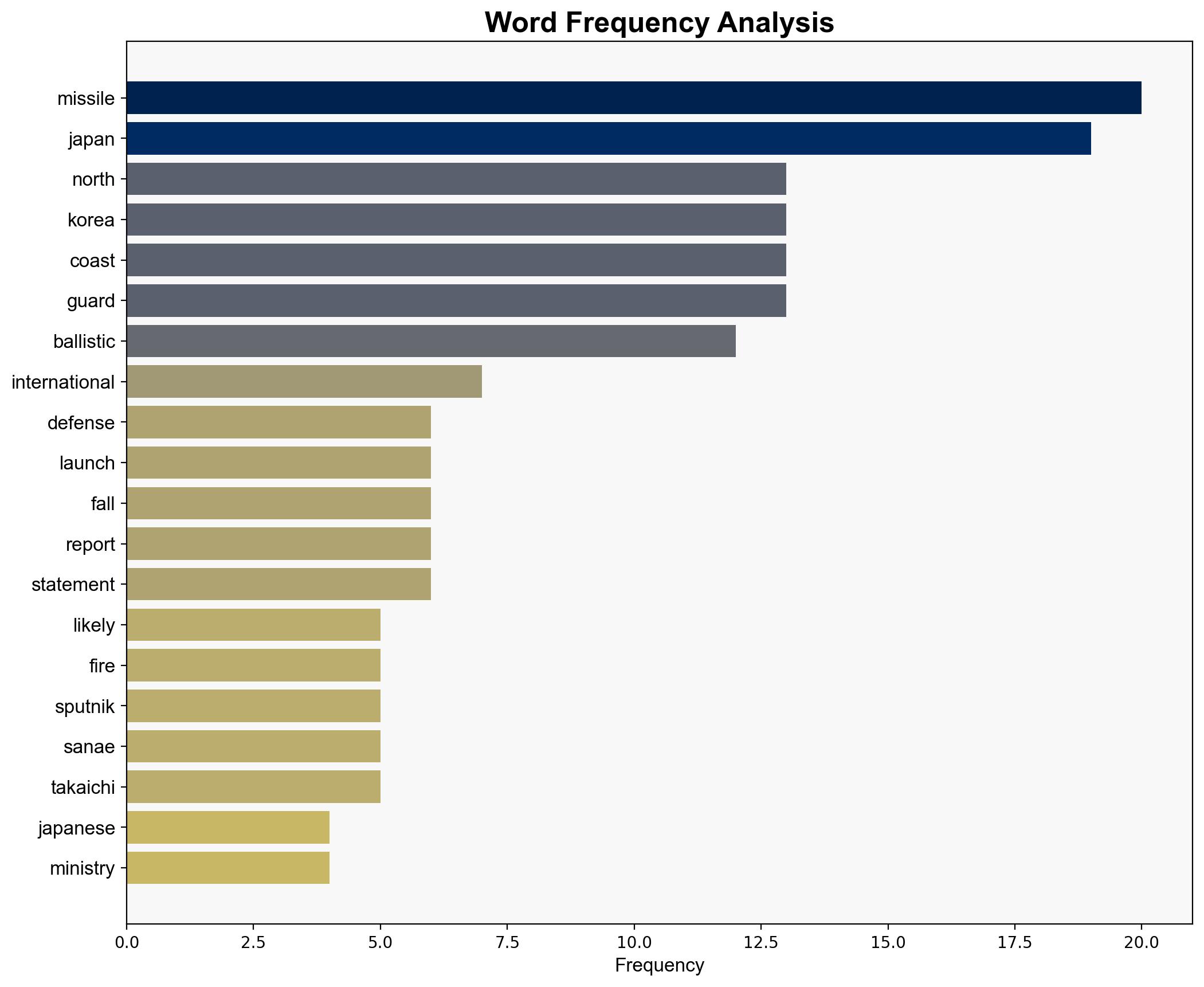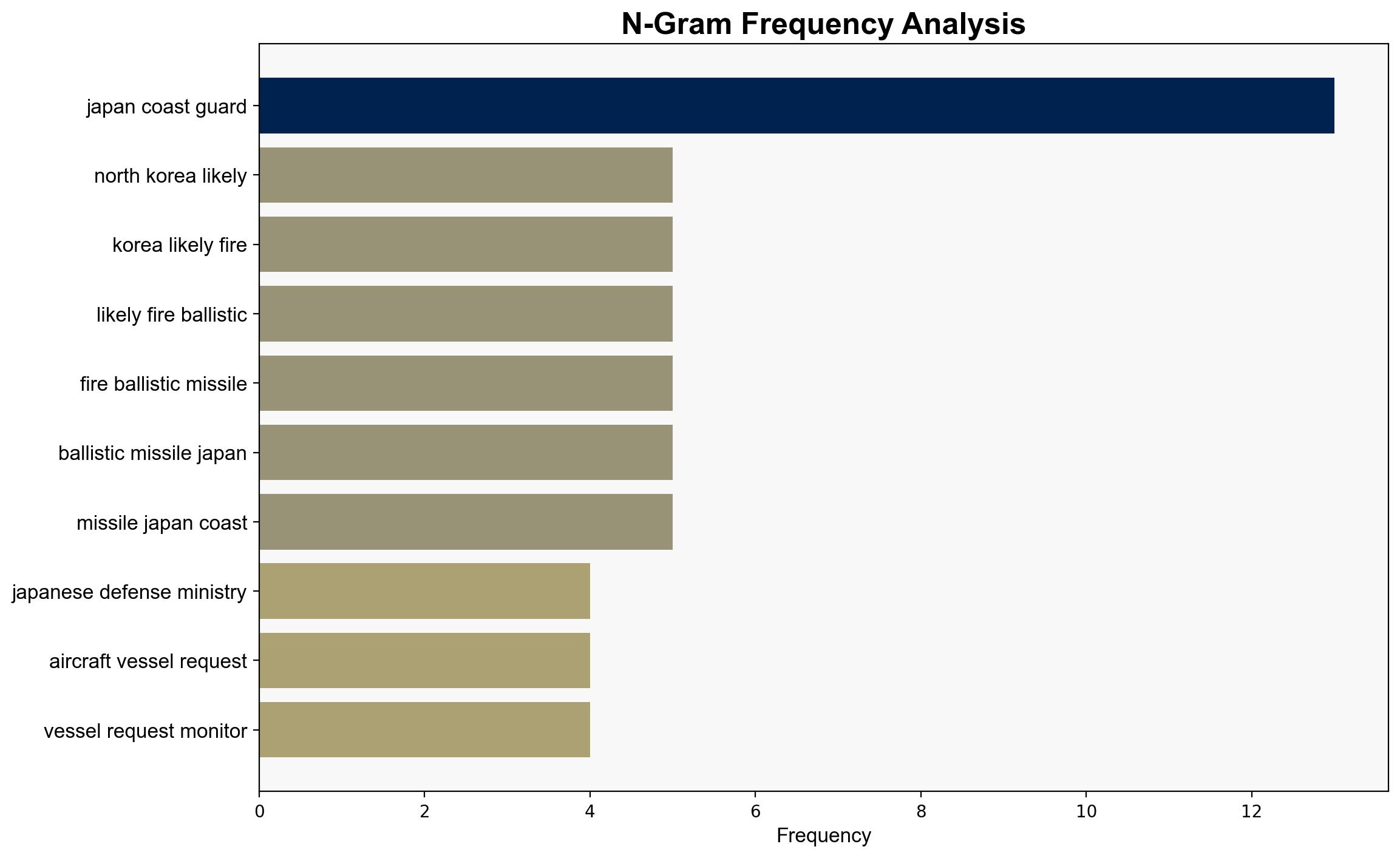North Korea Likely to Have Fired Ballistic Missile – Japan Coast Guard – Sputnikglobe.com
Published on: 2025-11-07
Intelligence Report: North Korea Likely to Have Fired Ballistic Missile – Japan Coast Guard – Sputnikglobe.com
1. BLUF (Bottom Line Up Front)
The most supported hypothesis is that North Korea has conducted a ballistic missile test, which landed near Japan’s Exclusive Economic Zone (EEZ). This assessment is based on consistent reporting from the Japan Coast Guard and Japanese defense ministry. Confidence level is moderate due to the lack of independent verification. Recommended action includes heightened surveillance and diplomatic engagement to de-escalate regional tensions.
2. Competing Hypotheses
1. **Hypothesis 1**: North Korea conducted a ballistic missile test, landing near Japan’s EEZ. This aligns with historical patterns of North Korean missile tests and regional military posturing.
2. **Hypothesis 2**: The reported missile launch is a misinterpretation or misinformation, possibly due to technical errors or deliberate deception by involved parties to manipulate regional dynamics.
Using the Analysis of Competing Hypotheses (ACH) 2.0, Hypothesis 1 is better supported due to corroborating reports from multiple sources, including the Japan Coast Guard and Japanese defense ministry.
3. Key Assumptions and Red Flags
– **Assumptions**: The Japan Coast Guard and defense ministry reports are accurate and unbiased. North Korea’s historical behavior is a reliable predictor of current actions.
– **Red Flags**: Lack of independent verification from other international bodies. Potential cognitive bias in interpreting North Korean actions as inherently aggressive.
– **Blind Spots**: Limited information on North Korea’s internal decision-making processes and potential external influences.
4. Implications and Strategic Risks
– **Military Escalation**: Increased military readiness in Japan and South Korea could lead to heightened regional tensions.
– **Geopolitical Dynamics**: Potential strain on diplomatic relations between North Korea and neighboring countries, impacting ongoing negotiations.
– **Economic Impact**: Disruption to regional trade routes and economic activities due to increased security measures.
– **Cybersecurity Threats**: Potential for cyber operations as a retaliatory measure or to gather intelligence.
5. Recommendations and Outlook
- Enhance surveillance and intelligence-sharing mechanisms with regional allies to verify missile activities.
- Engage in diplomatic channels to address and de-escalate tensions, potentially involving multilateral forums.
- Prepare for scenario-based outcomes:
- **Best Case**: Successful diplomatic resolution leading to de-escalation.
- **Worst Case**: Military confrontation or accidental escalation.
- **Most Likely**: Continued missile testing with periodic diplomatic engagements.
6. Key Individuals and Entities
– Sanae Takaichi
– Japan Coast Guard
– Japanese Defense Ministry
– North Korean leadership
7. Thematic Tags
national security threats, cybersecurity, counter-terrorism, regional focus





